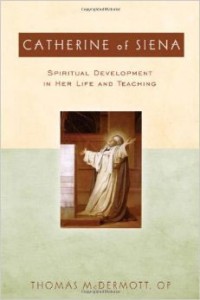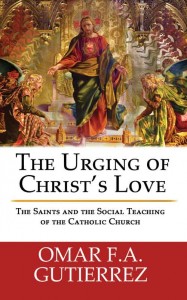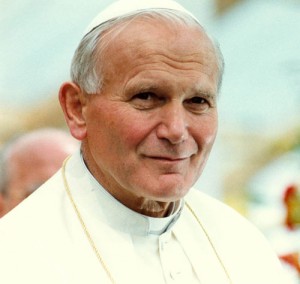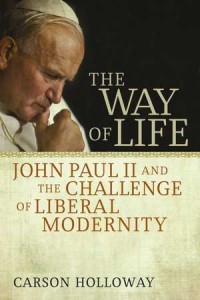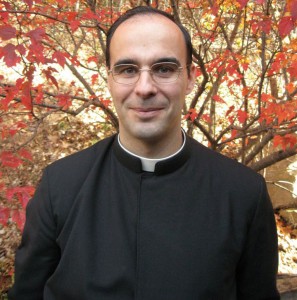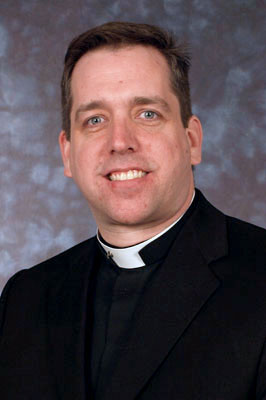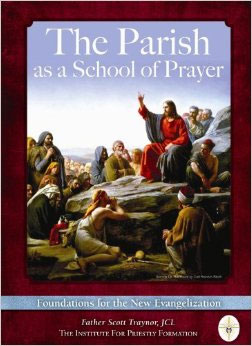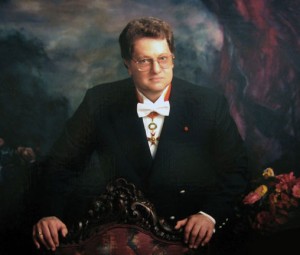 A very special “Inside the Pages” with Sir Gilbert Levine, who shares from his heart, this compelling tale of faith, friendship, and the healing power of music to bring people together. “The Pope’s Maestro” is an extraordinary and inspirational story of the unlikely friendship of  Sir Gilbert Levine and Pope John Paul II, who collaborated on symbolic acts of reconciliation: a series of internationally broadcast concerts designed to bring together people from all religious backgrounds under the auspices of the Vatican. Sir Gilbert  invites us all in to share in the special relationship bonded in music, prayer, and…love.
A very special “Inside the Pages” with Sir Gilbert Levine, who shares from his heart, this compelling tale of faith, friendship, and the healing power of music to bring people together. “The Pope’s Maestro” is an extraordinary and inspirational story of the unlikely friendship of  Sir Gilbert Levine and Pope John Paul II, who collaborated on symbolic acts of reconciliation: a series of internationally broadcast concerts designed to bring together people from all religious backgrounds under the auspices of the Vatican. Sir Gilbert  invites us all in to share in the special relationship bonded in music, prayer, and…love. 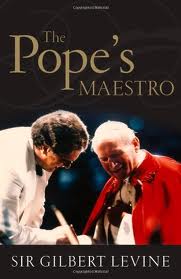 [powerpress] You can find more about this wonderful book here
[powerpress] You can find more about this wonderful book here
Tags: catholic, catholic podcast, catholic prayer, cathollc spirituality
This entry was posted on Wednesday, April 23rd, 2014 at 12:32 am
You can follow any responses to this entry through the RSS 2.0 feed.
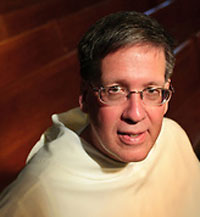 Episode 7Â St. Catherine of Siena: Her Life and Teachings with Fr. Thomas McDermott
Episode 7Â St. Catherine of Siena: Her Life and Teachings with Fr. Thomas McDermott
[powerpress]
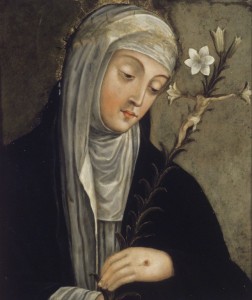 In this episode, Fr. McDermott aids in our understanding of St. Catherine’s teachings on the “stages” of our spiritual life.
In this episode, Fr. McDermott aids in our understanding of St. Catherine’s teachings on the “stages” of our spiritual life.
What is the proper understanding of grace and sharing in the Divine Life.  Good feelings, consolations, joy are experiences during the second step on the “Christ-Bridge”.  The concern of “falling  in love more with the gifts rather than with the Giver” is discussed.  The danger of spiritual gluttony and pride, as well as the need to care for one’s neighbor are essential elements in St. Catherine’s teachings.  Fr. McDermott also reflects on her teachings about the Divine Fire and gift of Tears.
Fr. Thomas McDermott, OP is Regent of Studies for the Dominican Province of St. Albert the Great and is the author of “Catherine of Siena: Spiritual Development in Her Life and Teaching” (Paulist, 2008) and “Filled with all the Fullness of God: An Introduction to Catholic Spirituality”. He obtained a doctorate in spiritual theology from the Angelicum and taught for several years at Kenrick-Glennon Seminary in St. Louis. He crrently serves as pastor at St. Vincent Ferrer, in Chicago, IL.
Tags: catholic, catholic podcast, catholic prayer, cathollc spirituality, McDermott, st catherine of siena, Thomas McDermott
This entry was posted on Tuesday, April 22nd, 2014 at 11:10 am
You can follow any responses to this entry through the RSS 2.0 feed.
Episode 10Â -The Way of Mystery: The Eucharist and Moral Living 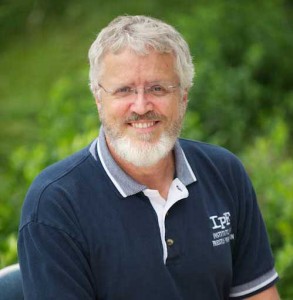
The Liturgy of the Eucharist part 2 : The True Meaning of “Full and Active Participation”…The Purpose of the Eucharistic Prayer.
[powerpress]
For more episodes in “The Way of Mystery” Series click here
Deacon James Keating, PhD, the director of Theological Formation for the Institute for Priestly Formation, located at Creighton University, in Omaha, is making available to â€Discerning Hearts†and all who listen, his series of programs entitled “The Way of Mysteryâ€.
 The Vatican II documents remind us that the spiritual journey is not made in a vacuum, that God has chosen to save us, not individually, but as The People of God. The Eucharist must help Christians to make their choices by discerning out of Christ’s paschal mystery. For this process to take place, however, Christians must first understand how the Eucharist puts them in touch with Christ’s passion, death, and resurrection, and what concrete implications being in touch with this mystery has for their daily lives.
The Vatican II documents remind us that the spiritual journey is not made in a vacuum, that God has chosen to save us, not individually, but as The People of God. The Eucharist must help Christians to make their choices by discerning out of Christ’s paschal mystery. For this process to take place, however, Christians must first understand how the Eucharist puts them in touch with Christ’s passion, death, and resurrection, and what concrete implications being in touch with this mystery has for their daily lives.
For more information on the “Institute of Priestly Formation†and for other material available by Deacon Keating, just click here
Don’t forget to pickup a copy of “Communion with Christ†, it is one of the best audio sets on prayer…ever!
Check out Deacon Keating’s “Discerning Heart†page
Tags: catholic, catholic podcast, catholic prayer, cathollc spirituality
This entry was posted on Tuesday, April 22nd, 2014 at 7:32 am
You can follow any responses to this entry through the RSS 2.0 feed.
Dr. Matthew Bunson discusses the life, times and teachings of St. John Damascene pt 2  [powerpress]
[powerpress]
-
Born: 676 AD, Damascus, Syria
-
Died: December 4, 749 AD, Mar Saba, Jordan
John Damascene extends these fundamental ideas to the veneration of the relics of Saints, on the basis of the conviction that the Christian Saints, having become partakers of the Resurrection of Christ, cannot be considered simply “dead”. Numbering, for example, those whose relics or images are worthy of veneration, John states in his third discourse in defence of images: “First of all (let us venerate) those among whom God reposed, he alone Holy, who reposes among the Saints (cf. Is 57: 15), such as the Mother of God and all the Saints. These are those who, as far as possible, have made themselves similar to God by their own will; and by God’s presence in them, and his help, they are really called gods (cf. Ps 82[81]: 6), not by their nature, but by contingency, just as the red-hot iron is called fire, not by its nature, but by contingency and its participation in the fire. He says in fact : you shall be holy, because I am Holy (cf. Lv 19: 2)” (III, 33, col. 1352 a). After a series of references of this kind, John Damascene was able serenely to deduce: “God, who is good, and greater than any goodness, was not content with the contemplation of himself, but desired that there should be beings benefited by him, who might share in his goodness: therefore he created from nothing all things, visible and invisible, including man, a reality visible and invisible. And he created him envisaging him and creating him as a being capable of thought (ennoema ergon), enriched with the word (logo[i] sympleroumenon), and orientated towards the spirit (pneumati teleioumenon)” (II, 2, pg 94, col. 865a). And to clarify this thought further, he adds: “We must allow ourselves to be filled with wonder (thaumazein) at all the works of Providence (tes pronoias erga), to accept and praise them all, overcoming any temptation to identify in them aspects which to many may seem unjust or iniquitous, (adika), and admitting instead that the project of God (pronoia) goes beyond man’s capacity to know or to understand (agnoston kai akatalepton), while on the contrary only he may know our thoughts, our actions, and even our future” (ii, 29, pg 94, col. 964c). Plato had in fact already said that all philosophy begins with wonder. Our faith, too, begins with wonder at the very fact of the Creation, and at the beauty of God who makes himself visible.The optimism of the contemplation of nature (physike theoria), of seeing in the visible creation the good, thebeautiful, the true, this Christian optimism, is not ingenuous: it takes account of the wound inflicted on human nature by the freedom of choice desired by God and misused by man, with all the consequences of widespread discord which have derived from it. From this derives the need, clearly perceived by John Damascene, that nature, in which the goodness and beauty of God are reflected, wounded by our fault, “should be strengthened and renewed” by the descent of the Son of God in the flesh, after God had tried in many ways and on many occasions, to show that he had created man so that he might exist not only in “being”, but also in “well-being” (cf. The Orthodox Faith, II, 1, pg 94, col. 981). With passionate eagerness John explains: “It was necessary for nature to be strengthened and renewed, and for the path of virtue to be indicated and effectively taught (didachthenai aretes hodòn), the path that leads away from corruption and towards eternal life…. So there appeared on the horizon of history the great sea of love that God bears towards man (philanthropias pelagos)”…. It is a fine expression. We see on one side the beauty of Creation, and on the other the destruction wrought by the fault of man. But we see in the Son of God, who descends to renew nature, the sea of love that God has for man. John Damascene continues: “he himself, the Creator and the Lord, fought for his Creation, transmitting to it his teaching by example…. And so the Son of God, while still remaining in the form of God, lowered the skies and descended… to his servants… achieving the newest thing of all, the only thing really new under the sun, through which he manifested the infinite power of God” (III, 1, pg 94, col. 981c-984b).
We may imagine the comfort and joy which these words, so rich in fascinating images, poured into the hearts of the faithful. We listen to them today, sharing the same feelings with the Christians of those far-off days: God desires to repose in us, he wishes to renew nature through our conversion, he wants to allow us to share in his divinity. May the Lord help us to make these words the substance of our lives.
For more visit Vatican.va
Dr. Matthew Bunson, Senior Fellow of the St. Paul Center for Biblical Theology, is one of the United States’ leading authorities on the papacy and the Church. His books include: The Encyclopedia of Catholic History; The Encyclopedia of Saints; Papal Wisdom; All Shall Be Well; Encyclopedia of the Roman Empire; and The Angelic Doctor: The Life and World of St. Thomas Aquinas; The Pope Encyclopedia; We Have a Pope! Benedict XVI, the first Catholic biography of the Holy Father in the English language; the Encyclopedia of U.S. Catholic History; Pope Francis. His also the editor of OSV’s “The Catholic Answer” magazine.
Tags: catholic, catholic podcast, catholic prayer, cathollc spirituality
This entry was posted on Tuesday, April 22nd, 2014 at 7:21 am
You can follow any responses to this entry through the RSS 2.0 feed.
 Episode 15- Seeking Truth with Sharon Doran -Announcement of the Kingdom Of God (PART 1)
Episode 15- Seeking Truth with Sharon Doran -Announcement of the Kingdom Of God (PART 1)
[powerpress]
Episode 15 –
Beatitudes (part 1)
“Blessed are…..â€
The Beatitudes. So familiar, yet do we really understand them?
In this lecture, Sharon blazes through the history of Israel, setting the stage for a deeper understanding of the meaning of the Beatitudes.
The occupied, oppressed nation of Israel was yearning for a savior, a savior that would rid them of centuries of foreign occupation.
Then Jesus arrives, working amazing miracles.
Could He be the One??
Expectations are high, but expectations are turned inside-out as Jesus proclaims the paradoxical truths of the Beatitudes.
Sharon Doran serves as the teaching director of “Seeking Truth.†An experienced Bible Study teacher, Sharon has a passion for scripture that will motivate and challenge you to immerse yourself in God’s Word and apply His message to your every day life.
 “Seeking Truth†is an in depth Catholic Bible Study, commissioned by the Archdiocese of Omaha in response to John Paul II’s call to the New Evangelization as well as Pope Benedict XVI’s exhortation for all Catholics to study scripture. To learn more go to:www.seekingtruth.net
“Seeking Truth†is an in depth Catholic Bible Study, commissioned by the Archdiocese of Omaha in response to John Paul II’s call to the New Evangelization as well as Pope Benedict XVI’s exhortation for all Catholics to study scripture. To learn more go to:www.seekingtruth.net
Tags: beatitudes, catholic, catholic podcast, catholic prayer, cathollc spirituality, Sharon Doran, The Beatitudes
This entry was posted on Tuesday, April 22nd, 2014 at 6:08 am
You can follow any responses to this entry through the RSS 2.0 feed.
Episode 15- Regnum Novum: Bringing forth the New Evangelization through Catholic Social Teaching with Omar Gutierrez – Blessed John XXIII - Mater et Magistra
Gutierrez – Blessed John XXIII - Mater et Magistra
[powerpress]
Blessed Pope John XXIII, born Angelo Giuseppe Roncalli (25 November 1881 – 3 June 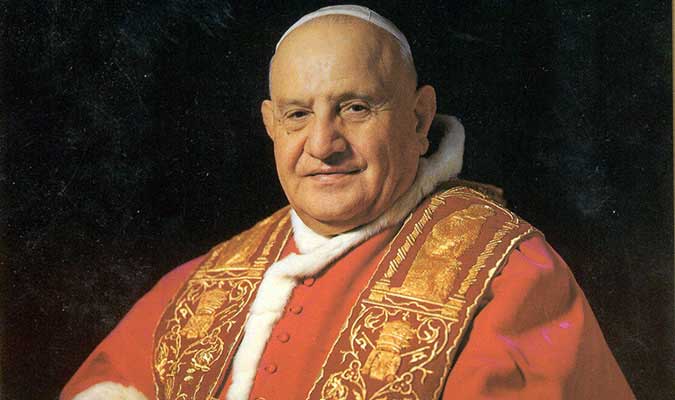 1963), headed the Catholic Church and ruled Vatican City from 1958 until his death.
1963), headed the Catholic Church and ruled Vatican City from 1958 until his death.
Pope John was elected on 28 October 1958. He called the Second Vatican Council (1962–1965) but did not live to see it to completion. He died in 1963, only four-and-a-half years after his election, and two months after the completion of his final encyclical, Pacem in Terris. He was beatified, along with Pope Pius IX, on 3 September 2000.
Also visit Omar’s “Discerning Hearts” page Catholic Social Teaching 101
You can find Omar Gutierrez’s book here
In The Urging of Christ’s Love Omar Gutiérrez tells the stories of eleven people who lived their lives in pursuit of Christ Jesus. Each Saint, Blessed or Servant of God is considered in the context of Catholic Social Teaching. Then at the end of each chapter a prayer is offered and quotes from the Compendium of the Social Doctrine of the Church are provided in order to link the lessons we can learn from the saint’s life to Church teaching. By discovering some new saint friends, and rediscovering some old ones, The Urging of Christ’s Love presents Catholic Social Teaching in an accessible and important way.
Tags: catholic social teaching, Omar Gutierrez
This entry was posted on Monday, April 21st, 2014 at 2:18 pm
You can follow any responses to this entry through the RSS 2.0 feed.
Episode 25 – The Holy Rule of St. Benedict: A Spiritual Path for Today’s World with Fr. Mauritius Wilde O.S.B., PhD.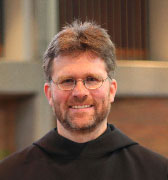
[powerpress]
From the Holy Rule of St. Benedict:
CHAPTER II
The Abbot who is worthy to be over a monastery, ought always to be mindful of what he is called, and make his works square with his name of Superior. For he is believed to hold the place of Christ in the monastery, when he is called by his name, according to the saying of the Apostle: “You have received the spirit of adoption of sons, whereby we cry Abba (Father)” (Rom 8:15). Therefore, the Abbot should never teach, prescribe, or command (which God forbid) anything contrary to the laws of the Lord; but his commands and teaching should be instilled like a leaven of divine justice into the minds of his disciples.
Let the Abbot always bear in mind that he must give an account in the dread judgment of God of both his own teaching and of the obedience of his disciples. And let the Abbot know that whatever lack of profit the master of the house shall find in the sheep, will be laid to the blame of the shepherd. On the other hand he will be blameless, if he gave all a shepherd’s care to his restless and unruly flock, and took all pains to correct their corrupt manners; so that their shepherd, acquitted at the Lord’s judgment seat, may say to the Lord with the Prophet: “I have not hid Thy justice within my heart. I have declared Thy truth and Thy salvation” (Ps 39[40]:11). “But they contemning have despised me” (Is 1:2; Ezek 20:27). Then at length eternal death will be the crushing doom of the rebellious sheep under his charge.
When, therefore, anyone taketh the name of Abbot he should govern his disciples by a twofold teaching; namely, he should show them all that is good and holy by his deeds more than by his words; explain the commandments of God to intelligent disciples by words, but show the divine precepts to the dull and simple by his works. And let him show by his actions, that whatever he teacheth his disciples as being contrary to the law of God must not be done, “lest perhaps when he hath preached to others, he himself should become a castaway” (1 Cor 9:27), and he himself committing sin, God one day say to him: “Why dost thou declare My justices, and take My covenant in thy mouth? But thou hast hated discipline, and hast cast My words behind thee” (Ps 49[50]:16-17). And: “Thou who sawest the mote in thy brother’s eye, hast not seen the beam in thine own” (Mt 7:3).
Let him make no distinction of persons in the monastery. Let him not love one more than another, unless it be one whom he findeth more exemplary in good works and obedience. Let not a free-born be preferred to a freedman, unless there be some other reasonable cause. But if from a just reason the Abbot deemeth it proper to make such a distinction, he may do so in regard to the rank of anyone whomsoever; otherwise let everyone keep his own place; for whether bond or free, we are all one in Christ (cf Gal 3:28; Eph 6:8), and we all bear an equal burden of servitude under one Lord, “for there is no respect of persons with God” (Rom 2:11). We are distinguished with Him in this respect alone, if we are found to excel others in good works and in humility. Therefore, let him have equal charity for all, and impose a uniform discipline for all according to merit.
For in his teaching the Abbot should always observe that principle of the Apostle in which he saith: “Reprove, entreat, rebuke” (2 Tm 4:2), that is, mingling gentleness with severity, as the occasion may call for, let him show the severity of the master and the loving affection of a father. He must sternly rebuke the undisciplined and restless; but he must exhort the obedient, meek, and patient to advance in virtue. But we charge him to rebuke and punish the negligent and haughty. Let him not shut his eyes to the sins of evil-doers; but on their first appearance let him do his utmost to cut them out from the root at once, mindful of the fate of Heli, the priest of Silo (cf 1 Sam 2:11-4:18). The well-disposed and those of good understanding, let him correct at the first and second admonition only with words; but let him chastise the wicked and the hard of heart, and the proud and disobedient at the very first offense with stripes and other bodily punishments, knowing that it is written: “The fool is not corrected with words” (Prov 29:19). And again: “Strike thy son with the rod, and thou shalt deliver his soul from death” (Prov 23:14).
The Abbot ought always to remember what he is and what he is called, and to know that to whom much hath been entrusted, from him much will be required; and let him understand what a difficult and arduous task he assumeth in governing souls and accommodating himself to a variety of characters. Let him so adjust and adapt himself to everyone — to one gentleness of speech, to another by reproofs, and to still another by entreaties, to each one according to his bent and understanding — that he not only suffer no loss in his flock, but may rejoice in the increase of a worthy fold.
Above all things, that the Abbot may not neglect or undervalue the welfare of the souls entrusted to him, let him not have too great a concern about fleeting, earthly, perishable things; but let him always consider that he hath undertaken the government of souls, of which he must give an account. And that he may not perhaps complain of the want of earthly means, let him remember what is written: “Seek ye first the kingdom of God and His justice, and all these things shall be added unto you” (Mt 6:33). And again: “There is no want to them that fear Him” (Ps 33[34]:10). And let him know that he who undertaketh the government of souls must prepare himself to give an account for them; and whatever the number of brethren he hath under his charge, let him be sure that on judgment day he will, without doubt, have to give an account to the Lord for all these souls, in addition to that of his own. And thus, whilst he is in constant fear of the Shepherd’s future examination about the sheep entrusted to him, and is watchful of his account for others, he is made solicitous also on his own account; and whilst by his admonitions he had administered correction to others, he is freed from his own failings.
 For more information about the ministry of the the Missionary Benedictines of Christ the King Priory in Schuyler, Nebraska visit here:
For more information about the ministry of the the Missionary Benedictines of Christ the King Priory in Schuyler, Nebraska visit here:
Tags: Holy Rule of St. Benedict, The Abbot
This entry was posted on Monday, April 21st, 2014 at 6:06 am
You can follow any responses to this entry through the RSS 2.0 feed.
WOL4 – Episode 4 –  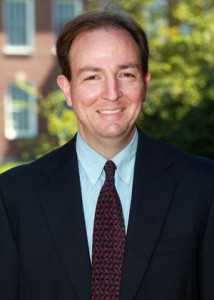 The Scottish Enlightenment…what was it and why was it such an important movement to understand.  The influence of David Hume - Scottish philosopher, historian, economist, and essayist.  The flaw in Hume’s philosophy –  that self-interest is  stronger than sympathy, and if morality, according to Hume’s thinking,  is derived from the passions, then ultimately self-interest is a greater worth and motivator than sympathy.  This conflicts with the Christian understanding of the “Golden Rule” and fuels the Culture of Death…those in need become very vulnerable in the culture.
The Scottish Enlightenment…what was it and why was it such an important movement to understand.  The influence of David Hume - Scottish philosopher, historian, economist, and essayist.  The flaw in Hume’s philosophy –  that self-interest is  stronger than sympathy, and if morality, according to Hume’s thinking,  is derived from the passions, then ultimately self-interest is a greater worth and motivator than sympathy.  This conflicts with the Christian understanding of the “Golden Rule” and fuels the Culture of Death…those in need become very vulnerable in the culture.
[powerpress]
The Way of Life, Carson Holloway examines the fundamental philosophers of modernity-from Hobbes to Toqueville-to suggest that John Paul II’s critique of modernity is intended not to reject, but to improve. Thus, claims Holloway, it is appropriate for liberal modernity to attend to the Pope’s thought, receiving it not as the attack of an enemy but as the criticism of a candid friend.
 Â
For other episodes in the series visit Dr. Holloway’s Discerning Hearts page
This series is based on Dr. Holloway’s book “The Way of Life”
Tags: Carson Holloway, David Hume, Scottish Enlightenment
This entry was posted on Monday, April 21st, 2014 at 6:00 am
You can follow any responses to this entry through the RSS 2.0 feed.
Episode 5 The Daily Prayer of Discernment: The Ignatian Wisdom of the Examen Prayer with Fr. Timothy 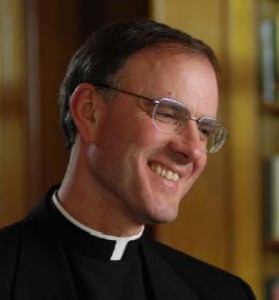 Gallagher. Fr. Gallagher continues to discuss the third step – REVIEW – which is where the “The Discernment of Spirits” intersects with “The Examen”. Â Then we approach the fourth step – FORGIVENESS – which is what all the actions in the prayer are leading to.
Gallagher. Fr. Gallagher continues to discuss the third step – REVIEW – which is where the “The Discernment of Spirits” intersects with “The Examen”. Â Then we approach the fourth step – FORGIVENESS – which is what all the actions in the prayer are leading to.
[powerpress]
As outlined from the Spiritual Exercises of St. Ignatius of Loyola (translated from the autograph by Fr. E. Mullan, S.J. Â 1909Â in the public domain)
METHOD FOR MAKING THE GENERAL EXAMEN
It contains in it five Points. First Point. The first Point is to give thanks to God our Lord for the benefits received. Second Point. The second, to ask grace to know our sins and cast them out. Third Point. The third, to ask account of our soul from the hour that we rose up to the present Examen, hour by hour, or period by period: and first as to thoughts, and then as to words, and then as to acts, in the same order as was mentioned in the Particular Examen. Fourth Point. The fourth, to ask pardon of God our Lord for the faults. Fifth Point. The fifth, to purpose amendment with His grace. OUR FATHER.
Father Timothy M. Gallagher, O.M.V., was ordained in 1979 as a member of the Oblates of the Virgin Mary, a religious community dedicated to retreats and spiritual formation according to the Spiritual Exercises of St. Ignatius. Â Fr. Gallagher is featured on the EWTN series “Living the Discerning Life: Â The Spiritual Teachings of St. Ignatius of Loyola”. Â For more information on books and audio available for purchase from Fr. Timothy Gallagher check out his website: www.frtimothygallagher.org
For the other episodes in this series check out Fr. Timothy Gallagher’s “Discerning Hearts†page
Tags: discernment, Timothy Gallagher
This entry was posted on Monday, April 21st, 2014 at 5:09 am
You can follow any responses to this entry through the RSS 2.0 feed.
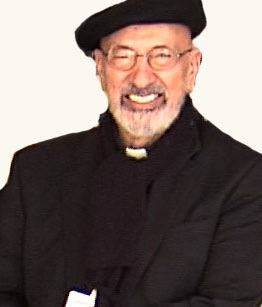 Show 62 ” Building a Kingdom of Love” – Happy Easter!!!! Have You Encountered Jesus?
Show 62 ” Building a Kingdom of Love” – Happy Easter!!!! Have You Encountered Jesus?
Gospel JN 20:1-9
On the first day of the week, Mary of Magdala came to the tomb early in the morning, while it was still dark, and saw the stone removed from the tomb. So she ran and went to Simon Peter and to the other disciple whom Jesus loved, and told them, “They have taken the Lord from the tomb, and we don’t know where they put him.†So Peter and the other disciple went out and came to the tomb. They both ran, but the other disciple ran faster than Peter and arrived at the tomb first; he bent down and saw the burial cloths there, but did not go in. When Simon Peter arrived after him, he went into the tomb and saw the burial cloths there, and the cloth that had covered his head, not with the burial cloths but rolled up in a separate place. Then the other disciple also went in, the one who had arrived at the tomb first, and he saw and believed. For they did not yet understand the Scripture that he had to rise from the dead. Lectionary for Mass for Use in the Dioceses of the United States, second typical edition, Copyright © 2001, 1998, 1997, 1986, 1970 Confraternity of Christian Doctrine;
Msgr. John A. Esseff is a Roman Catholic priest in the Diocese of Scranton. He was ordained on May 30th 1953, by the late Bishop William J. Hafey, D.D. at St. Peter’s Cathedral in Scranton, PA. Msgr. Esseff served a retreat director and confessor to Blessed Mother Teresa. He continues to offer direction and retreats for the sisters of the missionaries of charity around the world. Msgr. Esseff encountered St. Padre Pio, who would become a spiritual father to him. He has lived in areas around the world, serving in the Pontifical missions, a Catholic organization established by Bl. Pope John Paul II to bring the Good News to the world especially to the poor. Msgr. Esseff assisted the founders of the Institute for Priestly Formation and continues to serve as a spiritual director for the Institute. He continues to serve as a retreat leader and director to bishops, priests and sisters and seminarians and other religious leaders around the world.   To obtain a copy of Msgr. Esseff’s book by visiting here  Be sure to visit Msgr. Esseff’s website “Building a Kingdom of Love“
 To obtain a copy of Msgr. Esseff’s book by visiting here  Be sure to visit Msgr. Esseff’s website “Building a Kingdom of Love“
Tags: catholic, catholic podcast, catholic prayer
This entry was posted on Monday, April 21st, 2014 at 12:59 am
You can follow any responses to this entry through the RSS 2.0 feed.
Episode 24 – The Holy Rule of St. Benedict: A Spiritual Path for Today’s World with Fr. Mauritius Wilde O.S.B., PhD.
The Monk, the Missionary Spirit and Evangelization
[powerpress]
From the Holy Rule of St. Benedict:
PROLOGUE
Listen, O my son, to the precepts of thy master, and incline the ear of thy heart, and cheerfully receive and faithfully execute the admonitions of thy loving Father, that by the toil of obedience thou mayest return to Him from whom by the sloth of disobedience thou hast gone away.
To thee, therefore, my speech is now directed, who, giving up thine own will, takest up the strong and most excellent arms of obedience, to do battle for Christ the Lord, the true King.
 For more information about the ministry of the the Missionary Benedictines of Christ the King Priory in Schuyler, Nebraska visit here:
For more information about the ministry of the the Missionary Benedictines of Christ the King Priory in Schuyler, Nebraska visit here:
Tags: evangelization, Holy Rule of St. Benedict
This entry was posted on Thursday, April 17th, 2014 at 4:53 pm
You can follow any responses to this entry through the RSS 2.0 feed.
FG#14 – The Way of Trust and Love Ep 3Â – Fountains of Grace: reflections on contemporary spiritual classics with Donna Garrett Join host Donna Garrett, with Fr. James Perez, LC, as they discuss the spiritual classic “The Way of Trust and Love: A Retreat Guided By St. Therese of Lisieux” by Fr. Jacques Philippe. [powerpress] Discussed in this episode, among other topics, from “The Way of Trust and Love”
Join host Donna Garrett, with Fr. James Perez, LC, as they discuss the spiritual classic “The Way of Trust and Love: A Retreat Guided By St. Therese of Lisieux” by Fr. Jacques Philippe. [powerpress] Discussed in this episode, among other topics, from “The Way of Trust and Love”
We began to look more deeply into humility in the previous chapter. I think a good definition of humility may be this: being in the right relation to ourselves, which enables us to be in the right relation to God and to other people; relating to ourselves according to the truth of what and how we are. One of its essential aspects , as we have seen, is peacefully accepting our weakness and inner poverty.
If we accept ourselves as we are, we also accept God’s love for us. But if we reject ourselves, if we despise ourselves, we shut ourselves off from the love God has for us, we deny that love. If we accept ourselves in our weakness, our limitations, it will also be easier for us to accept other people. Often, quite simply, we can’t get along with other people because we can’t get along with ourselves . We have all experienced this at some point. Sometimes we are unhappy with ourselves because we’ve made mistakes or fallen into a fault that humiliates us, so we are really annoyed with ourselves. That makes us bad-tempered and even aggressive with others. What does this mean? Just that we make others pay for our difficulty in accepting our own inner poverty. Not accepting our limitations, we take it out on other people … This reaction is very common, and obviously unfair and contrary to the truth. Most of our conflicts others are nothing more than a projection of the conflicts we are having with ourselves. The opposite is also true. The more we accept ourselves as we are and are reconciled to our own weakness, the more we can accept other people and love them as they are.
For other episodes in the this series click here “Fountains of Grace w/Donna Garrett“
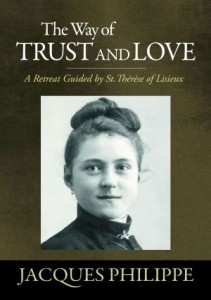 You can find “The Way of Trust and Love” here
You can find “The Way of Trust and Love” here
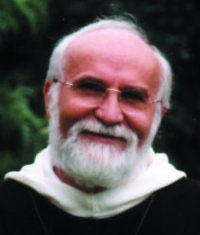
Fr. Jacques Philippe
Tags: catholic, catholic podcast, catholic prayer
This entry was posted on Thursday, April 17th, 2014 at 3:57 pm
You can follow any responses to this entry through the RSS 2.0 feed.
SP#7Â The School of Prayer: Foundations for the New Evangelization
Fr. Scott Traynor talks about the importance of “spiritual friendship or companionship”.  He discusses “heart-sharing” between spouses, but also in friendship with others.  He give us models on how this can look.  Fr. Scott also helps us to understand the difference between ordinary relationships and the unique gift of the “spiritual friendship”.  What is a healthy sharing relationship and what are the signs of unhealthy ones which we may want to avoid.
In Father Scott Traynor’s book, Blessed John Paul II’s memorable call to make of the parish a school of prayer takes on flesh and becomes concretely attainable. Those you read these faith-filled pages will find renewed desire to create such parishes and a clear road-map toward this goal.
–Father Timothy Gallagher, OMV
Father Scott Traynor received his STB from the Pontifical Gregorian University and his JCL from Catholic University of America. He has been an instructor and spiritual director for many of the programs at the Institute for Priestly Formation.
Father Traynor is a retreat master and spiritual director who has travelled the country as a speaker at various conferences, diocesan gatherings and national conferences.. He is especially sought after to present on the topics of prayer, discernment and priestly identity and mission.
He serves the Rector of the St. John Vianney Theological Seminary in Denver Colorado.
Tags: catholic, catholic podcast, catholic prayer
This entry was posted on Wednesday, April 16th, 2014 at 4:36 pm
You can follow any responses to this entry through the RSS 2.0 feed.
Episode 9Â -The Way of Mystery: The Eucharist and Moral Living 
The Liturgy of the Eucharist part 1 : The offertory and the priesthood…what is the role of the priest in the sacrifice of the Mass and what are some of the challenges faced by the priest today.
[powerpress]
For more episodes in “The Way of Mystery” Series click here
Deacon James Keating, PhD, the director of Theological Formation for the Institute for Priestly Formation, located at Creighton University, in Omaha, is making available to â€Discerning Hearts†and all who listen, his series of programs entitled “The Way of Mysteryâ€.
 The Vatican II documents remind us that the spiritual journey is not made in a vacuum, that God has chosen to save us, not individually, but as The People of God. The Eucharist must help Christians to make their choices by discerning out of Christ’s paschal mystery. For this process to take place, however, Christians must first understand how the Eucharist puts them in touch with Christ’s passion, death, and resurrection, and what concrete implications being in touch with this mystery has for their daily lives.
The Vatican II documents remind us that the spiritual journey is not made in a vacuum, that God has chosen to save us, not individually, but as The People of God. The Eucharist must help Christians to make their choices by discerning out of Christ’s paschal mystery. For this process to take place, however, Christians must first understand how the Eucharist puts them in touch with Christ’s passion, death, and resurrection, and what concrete implications being in touch with this mystery has for their daily lives.
For more information on the “Institute of Priestly Formation†and for other material available by Deacon Keating, just click here
Don’t forget to pickup a copy of “Communion with Christ†, it is one of the best audio sets on prayer…ever!
Check out Deacon Keating’s “Discerning Heart†page
Tags: Deacon Keating, james keating, Liturgy of the Eucharist, theological formation
This entry was posted on Wednesday, April 16th, 2014 at 4:17 pm
You can follow any responses to this entry through the RSS 2.0 feed.
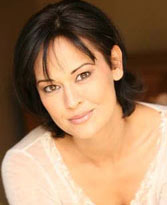
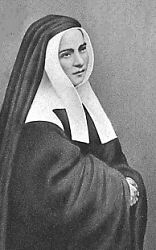 The best movie on the life of St. Bernadette is actually a pair of films starring Sydney Penny and distributed by Ignatius Press: “Bernadette” and “The Passion of Bernadette”. Sydney does an extraordinary job capturing the feverent love, joy and enthusiasm that encapsulates the heart of St. Bernadette. They are a joy to watch…our little saint is no sad victim, but instead a tremendous witness to the virtuous life and the grace of God.
The best movie on the life of St. Bernadette is actually a pair of films starring Sydney Penny and distributed by Ignatius Press: “Bernadette” and “The Passion of Bernadette”. Sydney does an extraordinary job capturing the feverent love, joy and enthusiasm that encapsulates the heart of St. Bernadette. They are a joy to watch…our little saint is no sad victim, but instead a tremendous witness to the virtuous life and the grace of God.
Tags: catholic, catholic podcast, catholic prayer
This entry was posted on Wednesday, April 16th, 2014 at 12:46 am
You can follow any responses to this entry through the RSS 2.0 feed.

